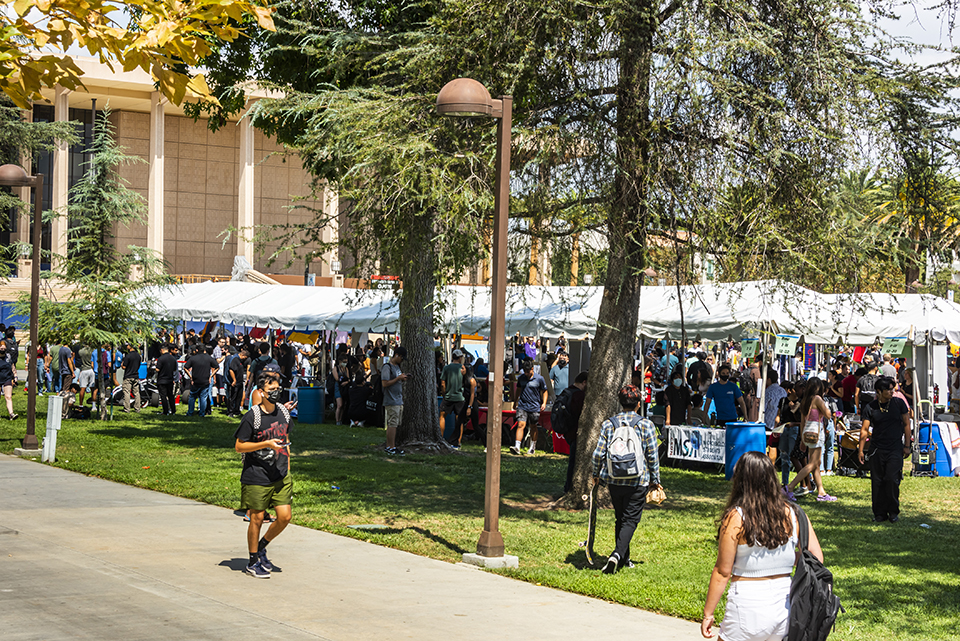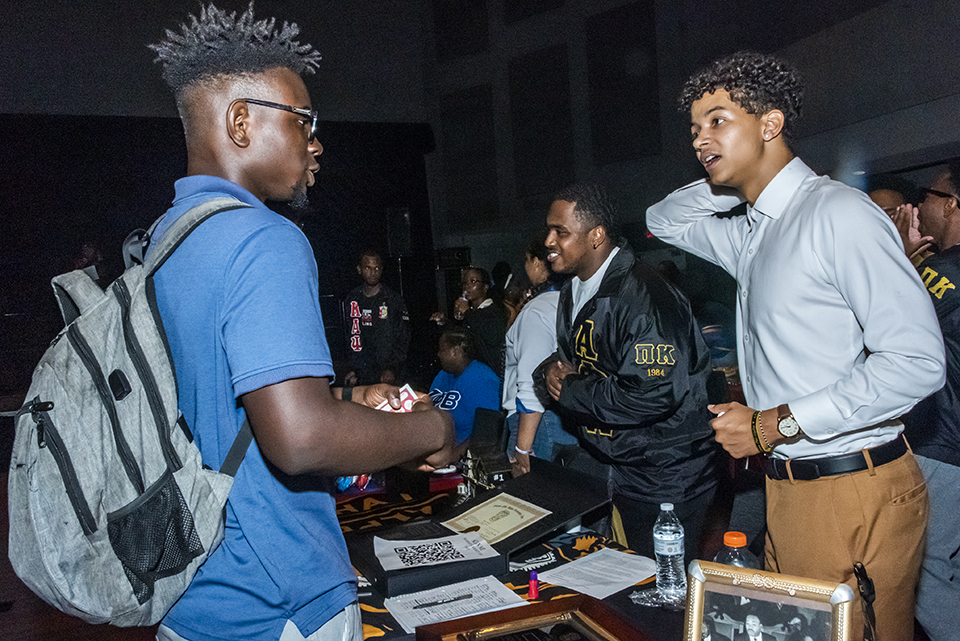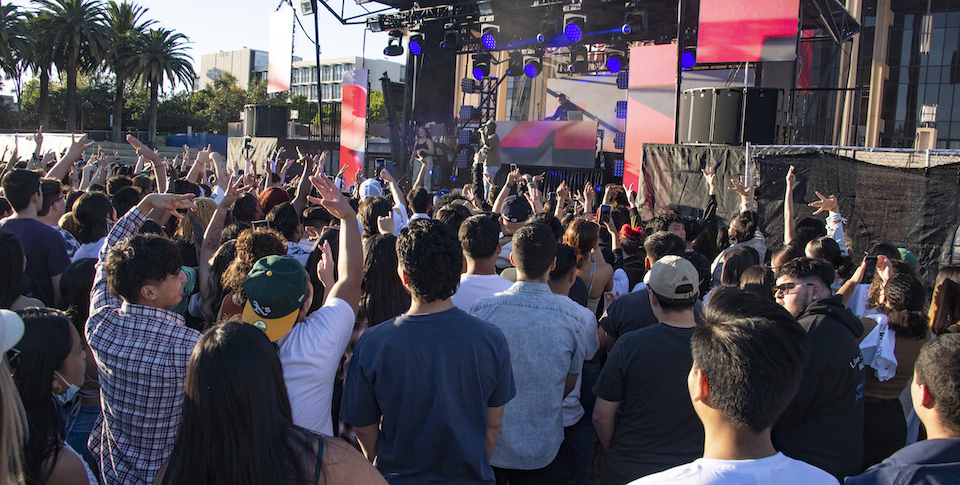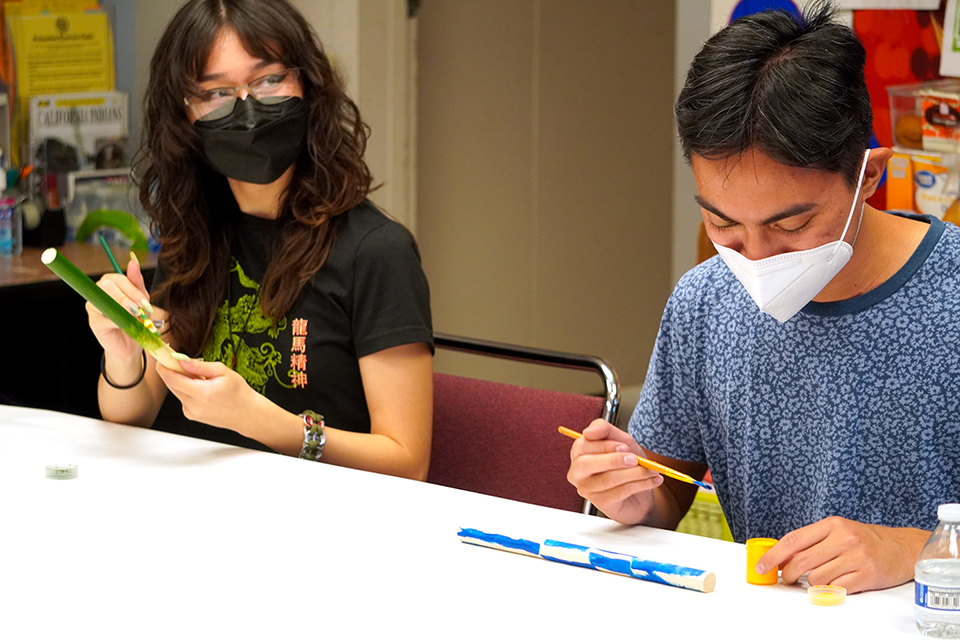Belonging on Campus: Why It’s Important and How to Get Involved
This far into the school year, you’re probably all dialed into a routine: take the quickest route to campus from home or work, slide into your preferred parking garage and stop at your favorite coffee or snack spot (with or without squirrels) before heading to class.
So, what’s missing? It might be a sense of belonging on campus — and that’s a crucial element to achieving your goals.
Studies show that a greater sense of belonging and connection on campus can lead to better academic outcomes including higher grades and ultimately, making it to graduation day.
Cultivating a sense of belonging can take place at any point in your academic journey— and there are many ways to go about it at CSUN. Many of the sources quoted in this article are not only staff and faculty members — they’re also alumni. They know what it’s like to show up, on their own, to this large campus. They figured out how to make it a home and now they help the Matadors who have followed them do the same. Read on for their reflections on campus life and what helped them gain a sense of belonging.
“There is this beautiful, gratifying moment when you come to campus and you cannot walk 15 feet without saying hello to somebody that you know or that somebody who knows you.” Christopher Aston ’02 (Communication Studies), M.A. ’04, director of Student Development and Transitional Programs, on his involvement as a student in Associated Students and New Student Orientation.
First, What Does it Mean to Belong?
Here’s a general definition — belonging is a feeling of being happy or comfortable as part of a particular group, in which you feel welcome and accepted.
Ryan Mason ’11 (Sociology), M.A. ’15 (Education) is the senior coordinator of the Black House and student support services. He defines belonging this way: “It’s creating long-term relationships with individuals that will support you through the good and the bad, and make sure that you can develop in some way — and that can be a peer, that can be faculty or staff,” Mason said.
Debbi Mercado ’09 (Linguistics), M.A. ’12 (Linguistics-TESL) is the program coordinator for the academic first -year experience course and community-based learning programs. These are the “University 100” or “U-100” classes available to freshmen, to help them gain a sense of community on campus.
“Belonging is achieved through shared experiences with one or more people,” said Mercado. “It’s connection, affiliation and the sense that you matter.”
“Something that helped me get involved was New Student Orientation. Being an orientation leader, it’s how I made all of my friends that I still have to this day.” Gabrielle Danis ’16 (Journalism) assistant director, New Student and Family Programs
Starting Out — Personal Experiences
It’s more than just about making friends or joining clubs — but those are worthwhile pursuits! Sierra Snodgrass, 21, is from Carson, and moved to campus last year. She’s pursuing a bachelor’s degree in sociology and a minor in psychology. She took Mercado’s U-100 class, where many of the assignments require students to explore the campus and write about those experiences.
“I think I tend to, in most environments, feel like an outsider,” said Snodgrass. “So, I needed a push to get out there,” she said.
Snodgrass ended up exploring “Meet the Clubs,” a huge club fair that’s held on the Library and Sierra quads twice per year, at the beginning of each fall and spring semester. Then, a trip to Alaska with Associated Students’ Outdoor Adventures program inspired her to pursue a job with the organization.
“Now, with Outdoor Adventures, I see a lot more [familiar] people around campus… to say ‘hi’ to people doesn’t feel as uncomfortable,” Snodgrass said.
I transferred here. It never occurred to me that I would have a friend. I was older, my kids were already practically in college. And my first week, I was approached by this freshman who had noticed that we had two classes together and he had his rollerblades around his neck and he said, ‘Do you want to have lunch?’ Which took a great deal of courage for him. He didn’t know anyone. We had lunch for the next four years.” Debbi Mercado ’09 (Linguistics) M.A. ’12 (Linguistics-TESL)
The Payoff
In a study by Maithreyi Gopalan and Shannon T. Brady, the authors note: “At four-year schools, belonging predicts better persistence, engagement and mental health” among students.
Christopher Aston, 02 (Communication Studies), M.A. ’04, who now oversees New Student Orientation and graduation ceremonies at CSUN, said getting involved builds overall confidence and empowerment.
“You’re doing more, but you’re doing better,” he said. “Not just your well-being, but your classwork is also improved, so everything is kind of tied together.”
Mercado noted that belonging promotes an overall sense of well-being.
“If you belong, it can have an impact on your emotional wellness, your social wellness,” Mercado said. “And all of these things add up to a balance and harmony.”
A Way In (or Many Ways): A (Partial) List of Resources and Ideas to Cultivate a Sense of Belonging
For first-time freshmen and transfer students, check out the University 100 classes.
Cultural and identity centers and departments on campus are great places to find a sense of community. They include:
Chicana and Chicano Studies and Chicano House
American Indian Studies Program
Central American and Transborder Studies
Women’s Research and Resource Center
Asian American and Asian Studies and Glenn Omatsu House
Academic Departments — Check with your department for upcoming events and opportunities to meet others in your major. Also check in with your professors at their office hours.
Clubs and Greek Life (Fraternities and Sororities): Visit the Matador Involvement Center and Matasync.
Events: Take in a movie, a lecture or a concert. Bookmark the Associated Students and the University Student Union event pages. See some world-class shows at The Soraya.
Athletics: Meet other sports fans at a game. Students always get in free with a valid student I.D.!
Need to work out? There are classes and games galore happening at the Student Recreation Center (SRC). Plus: countless Sports Clubs (intramurals).
There is so much going on at The University Library. Check it out!
No time to mingle? How about combining efforts and getting a job on campus. Handshake and the Career Center are some resources for campus employment.
Show off some Matador pride and become a University Ambassador or New Student Orientation Leader.





 experience
experience